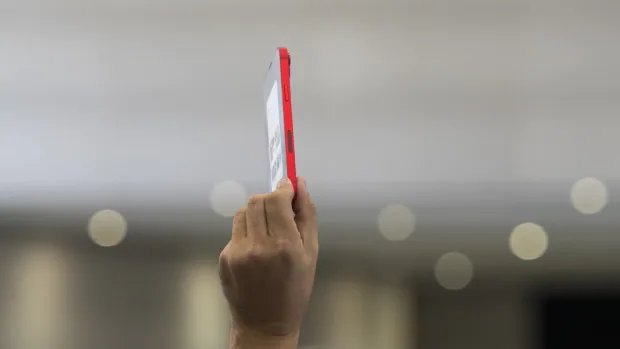Apple’s latest line of iPhones will boast better cameras, faster processors, and a longer-lasting battery — all at the same prices as last year’s models, despite the inflationary pressures that have pushed up the cost of many other everyday items.
This pricing decision, announced Wednesday during Apple’s first in-person product event in three years, came as a mild surprise. Many analysts predicted Apple would ask its loyal fans to pay up to 15 percent more to offset the rising cost of many components.
The fanfare surrounding Apple’s new iPhone 14 models is part of a post-Labor Day ritual that the company has hosted annually for more than a decade. Wednesday’s event was held at the company’s campus in Cupertino, California, in a theater named after the company’s co-founder Steve Jobs.
After Apple CEO Tim Cook strolled onto the stage, most of the event consisted of pre-taped video presentations, which the company honed at previous events during the pandemic.
For several years, Apple’s new iPhones have mostly featured incremental upgrades in cameras and battery life, and this year’s models were no exception. Pricing for the standard iPhone 14 starts at $799, or $1099 in Canada. The Deluxe iPhone 14 Pro Max will start at $1099 and $1,549 in Canada.
Those base prices haven’t changed in either country, although updated versions – and base model prices in other countries – will cost more than last time.
The latest improvements include a 48-megapixel camera in the Pro and Pro Max models, which the company says will deliver particularly sharp images. The iPhone 13 versions of the Pro and Pro Max have 12-megapixel cameras. This year’s high-end models will also feature always-on displays that stay lit even when the device is locked, a feature that has long been available on many smartphones powered by Google’s Android software.
Beginning in November, all iPhone 14 models will be able to send SOS messages via a new satellite feature — a security measure that allows users in remote areas without a wireless connection to call for help.
All iPhone 14 models will also include a motion sensor that can detect serious car accidents and automatically connect to emergency services.
With inflation still at its highest level in 40 years, consumers have reined in spending on many consumer items. This is likely contributing to a recent drop in smartphone sales, even though the iPhone has fared far better than competing Android devices.
Impact of Inflation
The deteriorating sales outlook led research firm International Data Corp. to predict a 6.5 percent drop in global smartphone shipments in 2022, nearly double the 3.5 percent drop it had estimated a few months ago. Despite this expected drop in sales, the average price of new smartphones this year is expected to be around 6 percent higher than last year, IDC estimates.
By keeping iPhone prices the same, Apple runs the potential risk of eroding its profits if inflation drives up its own costs. It’s a hit that the company could easily afford given it posted $44 billion in profits in the first half of this year.
Apple could also bolster its bottom line if more consumers looking to upgrade their mobile devices gravitate towards the higher-end Pro and Pro Max models, which command larger profit margins than the cheaper models. And it seems Apple expects a growing number of consumers will be willing to pay an additional $200 to $300 for deluxe versions of the iPhone 14, said Daniel Ives, an analyst at Wedbush Securities.
Apple’s share price rose 1 percent on Wednesday to close at $155.96.
Consumers have already bought iPhones this year despite Apple charging some of the highest prices in the industry. According to Canalys, another research firm, Apple sold an estimated 106 million iPhones in the first half of this year, up 8% from the same point last year.
Forrester analyst Thomas Husson praised the new line for its faster chips, improved design, and “some incremental innovative features.”
The company’s Apple Watch Series 8, meanwhile, will include a new temperature sensor designed to help women retrospectively track their ovulation cycles, in addition to the crash detection feature, also debuting on the iPhone 14 16, will start at $399 just like that last year’s model.
To broaden the appeal of wearable technology, Apple is launching a Watch Ultra model that’s more durable and offers a variety of specialized features tailored for hikers, divers, and other outdoor enthusiasts. The Watch Ultra, which will be available in stores September 23, will have a premium price of $799.
CCI Insight analyst Leo Gebbie predicted that the Ultra will compete with existing sports watch brands like Garmin and some Swiss luxury watch manufacturers that market their products around extreme sports.
Apple also unboxed its next generation of wireless earbuds, the AirPods Pro 2, which will also have a starting price of $249.
#Apple #unveils #lineup #including #latest #iPhone #model #CBC #News


Leave a Comment